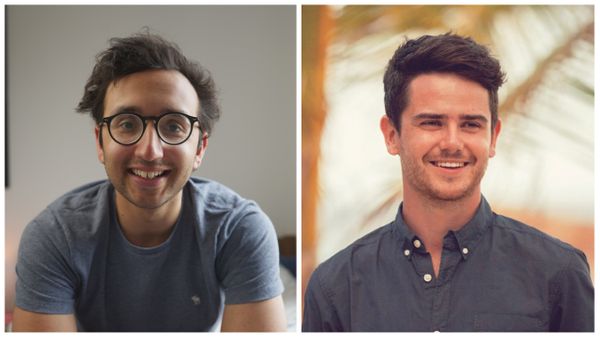Table of contents
John O'Nolan is the developer, founder and CEO at Ghost which he has grown to a $2.7m/year business. He has become a digital nomad in recent years and has been working remotely whilst travelling the world for well over a decade. John shares the lessons he’s learnt over the past decade, from setting up Ghost to successfully living the nomad life to why we should optimise for happiness rather than revenue.
Here are some of the highlights from our discussion:
“The worst thing you could do is strive to achieve someone else's definition of success, only to arrive there and realise that it's not yours"
Starting from a viewpoint that the goals are about the products and the user rather than purely financial gain, can, paradoxically, lead to greater success. By optimising for happiness and service, the process of developing the business becomes more enjoyable, more engaging and more rewarding which is far more sustainable than purely aiming at metrics and financial indicators.
Metrics and KPIs are an indicator of health, goals should be more about what we want to achieve. Obsessing over numbers doesn’t lend itself to creativity. Numbers are only helpful when they are relative – which is to say you are comparing them over a period of time. Your goals are better served in things you want to make and I think those are what drives what you do and the numbers are a health metric as to whether what you are doing is working or not.
Coding gives you a competitive advantage not just in terms of having the skill but what you can do with that skill. For example, if you are in an environment where everyone has a Squarespace site – how do you stand out? You can only stand out by learning to code and extend the possibilities to design something that does stand out.
Company taxation and where you incorporate matters a lot less than people imagine. There are so many other costs on top of what is ordinarily considered. In Singapore, theoretically tax is a lot lower than in the UK but banking fees are triple what they would be in the UK and accounting fees are ten times more in Singapore than UK.
Successful membership models hinge on the value that they provide. If you can establish value that people actually want and care about, everything gets simpler.
Subscriptions force you to produce constant value. People can cancel at any time therefore you are forced into producing consistent value otherwise people will leave. The worst case scenario is they cancel after a month, the best case is that they stay for a couple of years and you have built up a relationship with the customer.
Travel opens your eyes to the way the world works and exposes you to different cultures and different ways of thinking and different types of people which broadens your whole outlook. If you want to have good ideas and different ideas, getting out and seeing the world is one of the best ways of seeing what ideas exist as well as what different people value in different cultures.
Living as a nomad is simpler than people think. What works for nomads is normal clothes and a normal suitcase. What you need is basically what you have around you now, just less of it.
Starting the nomad life isn’t anything more complicated than buying a one-way ticket. It never feels comfortable and you either embrace that risk or you’re paralysed by it.
The backpack/suitcase metric is a good way of keeping lifestyle creep in check when travelling. The limitation on space acts as an effective forcing function and prevents you from accumulating unnecessary possessions, making it easier to travel for longer periods of time.

